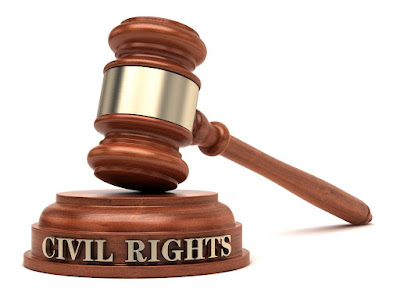What Is The Process for Filing a Civil Rights Complaint?
Civil rights are fundamental to a fair and just society, ensuring that all individuals are treated equally and protected from discrimination. However, there may be instances where one's civil rights are violated, necessitating the filing of a civil rights complaint. In this article, we will explore the process for filing a civil rights complaint, guiding individuals on how to seek recourse when faced with unlawful discrimination.
Understanding Civil Rights: Before delving into the complaint process, it is crucial to grasp the concept of civil rights and the protections they afford. Civil rights encompass a range of fundamental liberties, including freedom of speech, religion, and the right to be free from discrimination based on factors such as race, gender, religion, disability, or national origin. These rights are safeguarded by various laws and statutes, both at the federal and state levels.
Identifying Violations and Available Remedies: When a person believes their civil rights have been violated, it is important to assess the nature of the violation and the specific protections afforded under the law. For instance, if someone experiences workplace discrimination based on their race, they may have grounds to file a complaint under Title VII of the Civil Rights Act of 1964. It is crucial to understand the applicable laws and protections in order to proceed with a complaint.
Initiating the Complaint Process: a. Contacting the Relevant Agency: Depending on the nature of the violation, different government agencies oversee civil rights complaints. For example, the Equal Employment Opportunity Commission (EEOC) handles complaints related to workplace discrimination, while the Department of Housing and Urban Development (HUD) deals with housing-related discrimination. Contact the appropriate agency to initiate the complaint process.
b. Filing the Complaint: The agency will require specific information regarding the alleged violation. This includes details about the incident, the parties involved, and any supporting evidence. The complaint can typically be filed online, through a form available on the agency's website, or by mail.
c. Investigation and Resolution: Once the complaint is filed, the agency will initiate an investigation. This may involve gathering evidence, conducting interviews, and examining relevant documents. The agency will then determine whether there is sufficient evidence to support the complaint. If a violation is found, the agency may facilitate a resolution through mediation, conciliation, or, in some cases, file a lawsuit on behalf of the complainant.
- Seeking Legal Assistance: While it is possible to file a civil rights complaint independently, navigating the legal intricacies can be challenging. In complex cases or when facing potential retaliation, seeking legal representation is advisable. An attorney experienced in civil rights matters can provide guidance, ensure the complaint is properly prepared, and advocate for your rights throughout the process.
Conclusion:
Filing a civil rights complaint is a vital step in seeking justice and protecting one's rights when faced with unlawful discrimination. By understanding the process outlined above and familiarizing oneself with the relevant laws, individuals can take a proactive stance against violations and contribute to the promotion of equality and fairness in our society.Remember, every civil rights case is unique, and seeking legal advice is essential to ensure proper guidance tailored to your specific circumstances.
External Link: American Civil Liberties Union (ACLU) - The ACLU is a non-profit organization that champions civil rights and provides resources and support for individuals facing civil rights violations.
Law Citations:
- Title VII of the Civil Rights Act of 1964
- Equal Employment Opportunity Commission (EEOC)
- Department of Housing and Urban Development (HUD)




Post a Comment
0 Comments